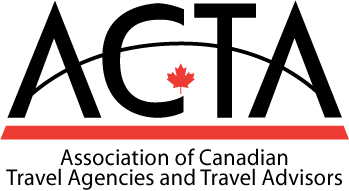Airline Seeks Secrecy Order
Dale Smith, www.blacklocks.ca
Air Canada is seeking a federal order to halt public release of its compensation schedule for passengers stranded by flight cancellations. A passengers’ advocate who obtained the data gave it to reporters.
“It makes absolutely no sense,” said Dr. Gábor Lukács of Air Passenger Rights. “There are no nuclear secrets here.”
The airline filed the information in reply to a passenger complaint at the Canadian Transportation Agency. According to the training department manual Air Canada Expense Policy, customers whose flights are cancelled should be limited to reimbursement of at most $182 a day for meals and hotels. “All compensation is goodwill and costs should never exceed amounts,” the manual says.
Air Canada in a January 20 letter to regulators explained the manual was an “internal document” and should not be released: “Air Canada is willing to share these documents with the complainants…provided that they sign a confidentiality and non-disclosure undertaking,” the airline wrote. “However, should the Agency not deem these documents confidential, they would be released to the public, which would put Air Canada at a commercial disadvantage vis-à-vis its competitors regarding treatment of expense requests.”
Lukács distributed the manual to newsrooms, saying the airline had an obligation to publish its terms and conditions. “The tariff has to be public,” he said. The manual advises Air Canada staff to limit compensation to $150 hotel costs for “premium” customers, $100 for “regular”, and meal expenses totalling no more than $7 for breakfast, $10 for lunch and $15 for supper.
The documents were filed in response to a complaint by a passenger stranded in London in 2013 after his transatlantic flight to Toronto was cancelled due to “mechanical requirements”, according to the complaint. The passenger claimed he did not receive promised accommodation or meal vouchers from the airline, and later billed $532 for a night at the Holiday Inn and $70 for a meal.
“This is an expensive area,” Lukács said. “It’s London Heathrow.” Air Canada rejected the claim for expenses, citing its policy.
The Transportation Agency in earlier confidential documents acknowledged it hears only a fraction of actual passenger complaints. Staff calculated Air Canada and WestJet carry nearly 40 million passengers in a typical year: “Although air carriers do not publish data on the number of complaints they receive, the U.S. Department of Transportation estimates that for every complaint they receive, the air carriers receive around 50,” said the report Assessment Of Air Passenger Level Of Service Indicators In Canada.
“Although there are significant differences between the two jurisdictions, applying the same ratio to Canada results in an estimate of approximately 40,000 complaints,” Assessment said. Regulators logged 396 complaints against Air Canada and WestJet in 2014, the most recent data available. Blacklock’s obtained the document through Access To Information.
